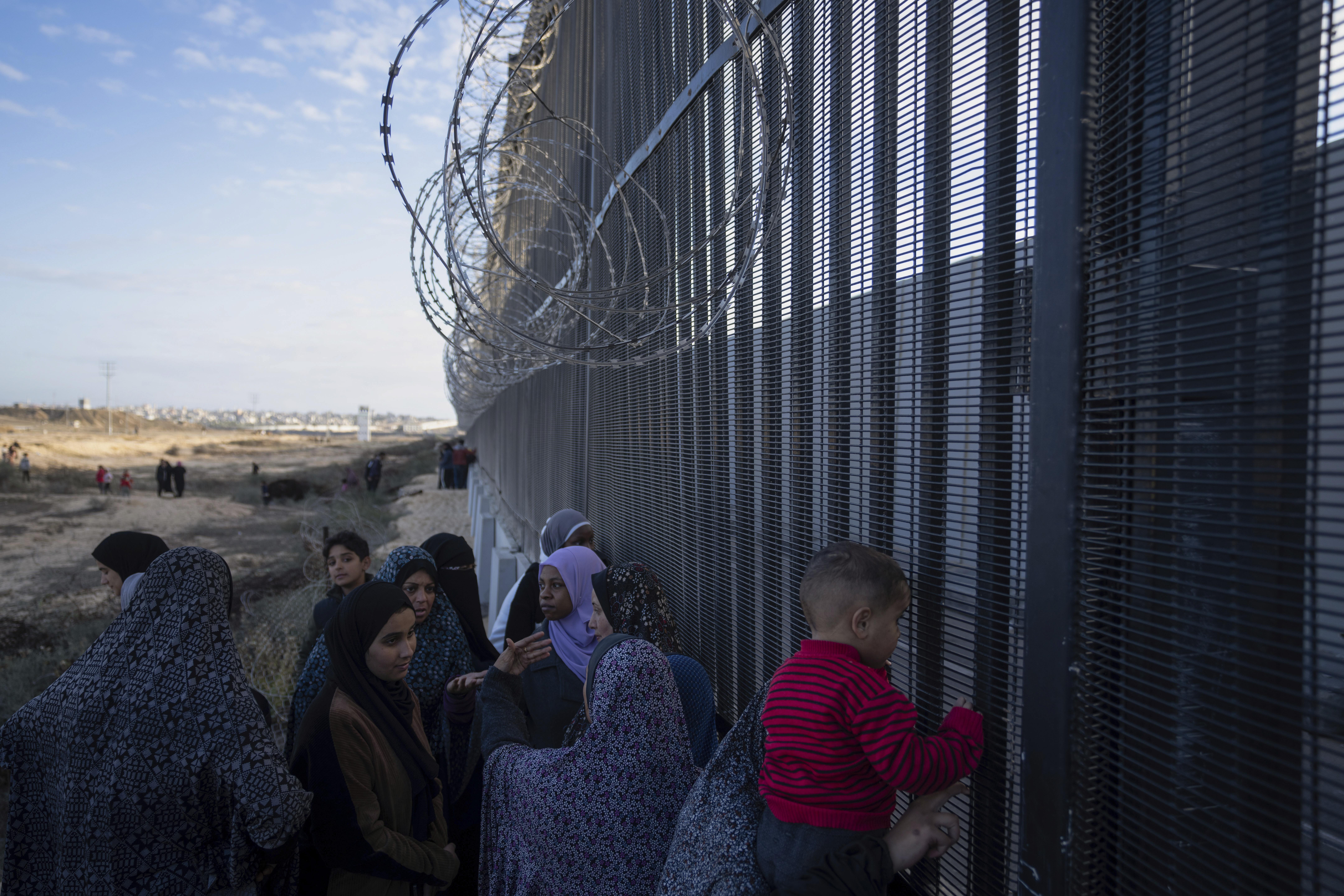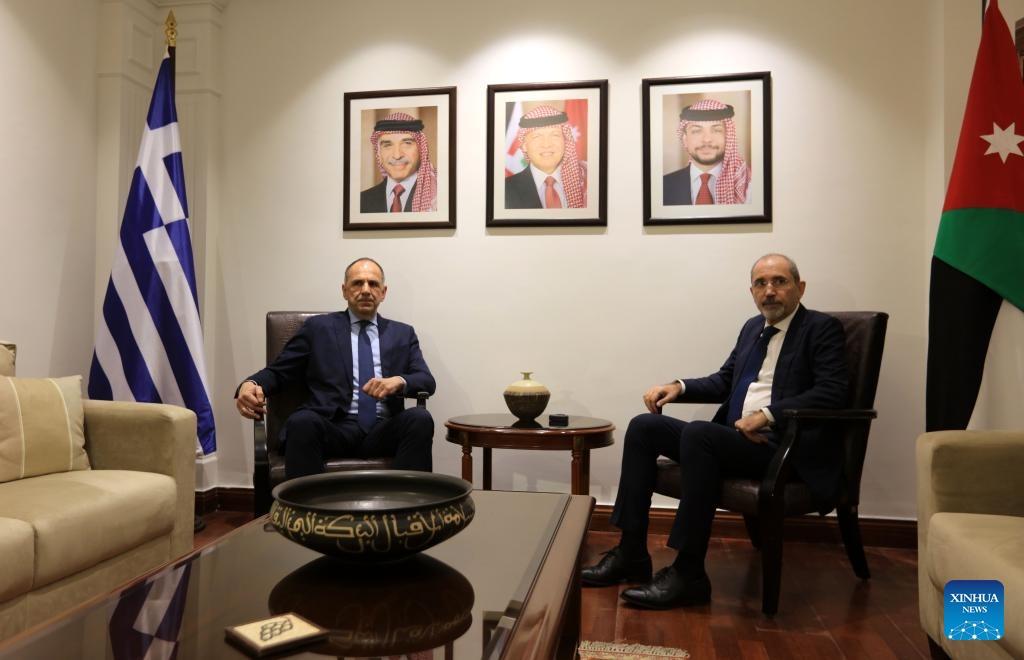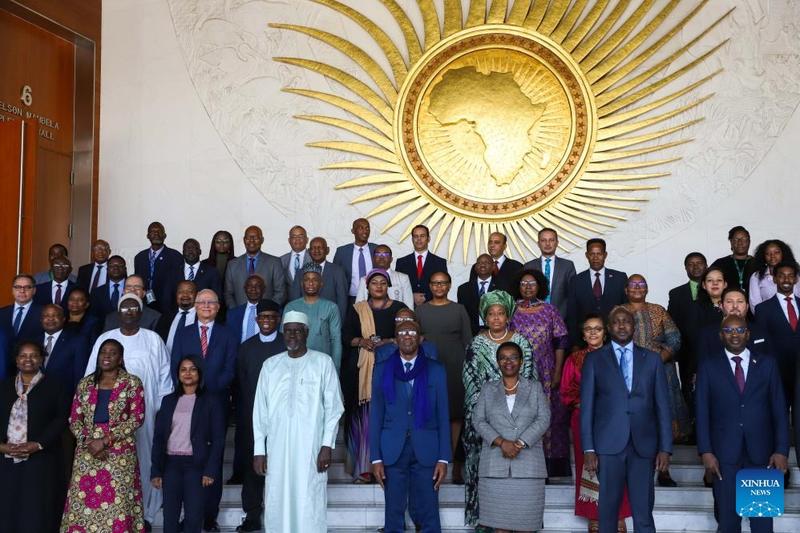 UN Secretary-General Antonio Guterres speaks to reporters at the UN headquarters in New York, on Dec 22, 2023. (PHOTO / XINHUA)
UN Secretary-General Antonio Guterres speaks to reporters at the UN headquarters in New York, on Dec 22, 2023. (PHOTO / XINHUA)
UNITED NATIONS/AMMAN/ADDIS ABABA - UN Secretary-General Antonio Guterres on Monday again called for an immediate humanitarian ceasefire in Gaza as the conflict turns 100 days.
There is one solution to help address all the issues of the unprecedented level of civilian casualties and catastrophic humanitarian conditions in Gaza, the fate of the hostages, and the tensions that are spilling over across the region, he told reporters. "We need an immediate humanitarian ceasefire."
Apart from the atrocities in Gaza, the cauldron of tensions in the occupied West Bank is boiling over with heightened violence compounding an already dire fiscal crisis for the Palestinian Authority. Tensions are also sky-high in the Red Sea and beyond and may soon be impossible to contain, he warned.
"I have serious concerns about daily exchanges of fire across the Blue Line. This risks triggering a broader escalation between Israel and Lebanon and profoundly affecting regional stability," said Guterres. "I am profoundly worried by what is unfolding. It is my duty to convey this simple and direct message to all sides: stop playing with fire across the Blue Line, de-escalate, and bring hostilities to an end in accordance with Security Council Resolution 1701."
One hundred days into the conflict, the humanitarian situation in Gaza is beyond words. Nowhere and no one is safe. Traumatized people are being pushed into increasingly limited areas in the south that are becoming intolerably and dangerously congested, said the UN chief.
While there have been some steps to increase the flow of humanitarian assistance into Gaza, life-saving relief is not getting to people who have endured months of relentless assault at anywhere near the scale needed. The long shadow of starvation is stalking the people of Gaza -- along with disease, malnutrition and other health threats, he said.
ALSO READ: Israel to end intensive strikes in southern Gaza 'soon'
 Palestinians displaced by the Israeli bombardment of the Gaza Strip peer through the border fence with Egypt, in Rafah, southern Gaza, Jan 14, 2024. (PHOTO / AP)
Palestinians displaced by the Israeli bombardment of the Gaza Strip peer through the border fence with Egypt, in Rafah, southern Gaza, Jan 14, 2024. (PHOTO / AP)
An effective aid operation in Gaza -- or anywhere else -- requires certain basics. It requires security. It requires an environment where staff can work in safety. It requires the necessary logistics and the resumption of commercial activity. The obstacles to aid are clear, he said.
The United Nations and its partners cannot effectively deliver humanitarian aid while Gaza is under such heavy, widespread and unrelenting bombardment. Since the outbreak of the conflict on Oct 7, 152 UN staff members have been killed in Gaza -- the largest single loss of life in the history of the world organization.
The aid operation faces significant hurdles at the Gaza border. Vital materials, including life-saving medical equipment and parts that are critical for the repair of water facilities and infrastructure, have been rejected with little or no explanation, disrupting the flow of critical supplies and the resumption of basic services.
The aid operation also faces major impediments to distribution within Gaza, he said.
"We are seeking to ramp up the response. But we need basic conditions in place," Guterres said.
Jordan's Foreign Minister Ayman Safadi on Monday emphasized the urgent need for the international community to take responsibility and find a path to halt the Israeli hostility in Gaza
The parties must respect international humanitarian law, respect and protect civilians, and ensure their essential needs are met. And there must be an immediate and massive increase in the commercial supply of essential goods. The UN and humanitarian partners cannot alone provide basic necessities that should also be available in markets to the entire population," he said.
Nothing can justify the violence by Hamas. At the same time, the onslaught on Gaza by Israeli forces over these 100 days has unleashed wholesale destruction and levels of civilian killings at a rate that is unprecedented during his years as UN secretary-general. The vast majority of those killed are women and children. Nothing can justify the collective punishment of the Palestinian people, said Guterres.
Meanwhile, Jordan's Foreign Minister Ayman Safadi on Monday emphasized the urgent need for the international community to take responsibility and find a path to halt the Israeli hostility in Gaza.
He made the remarks at a meeting in the capital Amman with Sigrid Kaag, United Nations senior humanitarian and reconstruction coordinator for Gaza, during which the minister reviewed efforts made to stop the humanitarian catastrophe resulting from the ongoing conflict in the region.
Safadi highlighted the importance of ensuring the flow of humanitarian aid to Gaza without obstacles and guaranteeing the continued operation of vital facilities and hospitals serving Palestinians in the strip.
Safadi reiterated Jordan's rejection of the displacement of Palestinians within or outside Palestinian territories, and emphasized the necessity of the return of displaced individuals in Gaza to their respective areas, according to a statement by the ministry.
For her part, Kaag praised Jordan's efforts to mobilize effective international action to stop the conflict and deliver humanitarian assistance to the region.
 Jordanian Foreign Minister Ayman Safadi (right) meets with Greek Foreign Minister Giorgos Gerapetritis in Amman, Jordan, on Jan 15, 2024. (PHOTO / XINHUA)
Jordanian Foreign Minister Ayman Safadi (right) meets with Greek Foreign Minister Giorgos Gerapetritis in Amman, Jordan, on Jan 15, 2024. (PHOTO / XINHUA)
When meeting with Greek Foreign Minister Giorgos Gerapetritis, Safadi said that Israel's attack on the Gaza Strip will not bring security to Israel, but threaten the security of the entire region.
In a joint press conference following the meeting, Safadi stressed that Jordan calls for an immediate cessation of the hostility on Gaza, and the adoption of effective mechanisms to deliver all the needed assistance to the strip.
The international community should step up to "stop this destruction and madness, putting the region on a clear path to a comprehensive solution to the entire conflict, which will only be achieved if Palestinians obtain all their legitimate rights, including the right to an independent and sovereign state," he said.
For his part, the Greek minister said "Jordan is a key player in the region, and we share a common vision that the region should be stable, free from wars and conflicts, with the prerequisite being to find a sustainable solution to the Palestinian issue."
"We regret the loss of civilian lives, the destructive effects, the growing concern in the West Bank, and also the crisis casting shadows on Lebanon, and the increasing tension in the Red Sea, which threatens navigation in the region," he added.
 Delegates attending the 47th Ordinary Session of the Permanent Representatives Committee of the African Union pose for a group photo in Addis Ababa, Ethiopia, on Jan 15, 2024. (PHOTO / XINHUA)
Delegates attending the 47th Ordinary Session of the Permanent Representatives Committee of the African Union pose for a group photo in Addis Ababa, Ethiopia, on Jan 15, 2024. (PHOTO / XINHUA)
Also on Monday, the 47th Ordinary Session of the Permanent Representatives Committee of the African Union opened in Addis Ababa, the capital of Ethiopia, with Chairperson of the AU Commission Moussa Faki Mahamat reiterating a two-state solution to end the Israeli-Palestinian conflict.
Faki said while the effect of the Russia-Ukraine crisis is constantly growing, the Israeli- Palestinian conflict is continuing with indescribable intensity, causing humanitarian tragedies and destruction of properties.
"African conscience is shaken by the tragedy that has occurred due to the conflict and I reiterate once again our call for humanitarian ceasefire and engagement of the international community to materialize the two-state solution to end the conflict there," he said.
Noting the continuing shelling of Palestinian civilians and destruction of their means of existence, Faki recalled that the conflict has been of great concern for Africa for over 60 years.
He noted that a lasting solution is required to ensure the co-existence of both nations to allow their peoples live in a state of peace and stability.
Africa is not free from conflict either, said the chairperson, noting the unfolding security problems in Sudan, the Democratic Republic of the Congo and other parts of the continent, affecting peace, stability and development of the continent.
He said the African Union needs to go a long way to achieve the general objective of the union, namely peace, the integration and development of Africa.
The PRC session is held under the theme "Educate an African fit for the 21st Century: Building resilient education systems for increased access to inclusive, lifelong, quality, and relevant learning in Africa."
It will be followed by the 44th ordinary session of the Executive Council and the 37th Ordinary Session of the Assembly of the AU, starting from mid-February.


